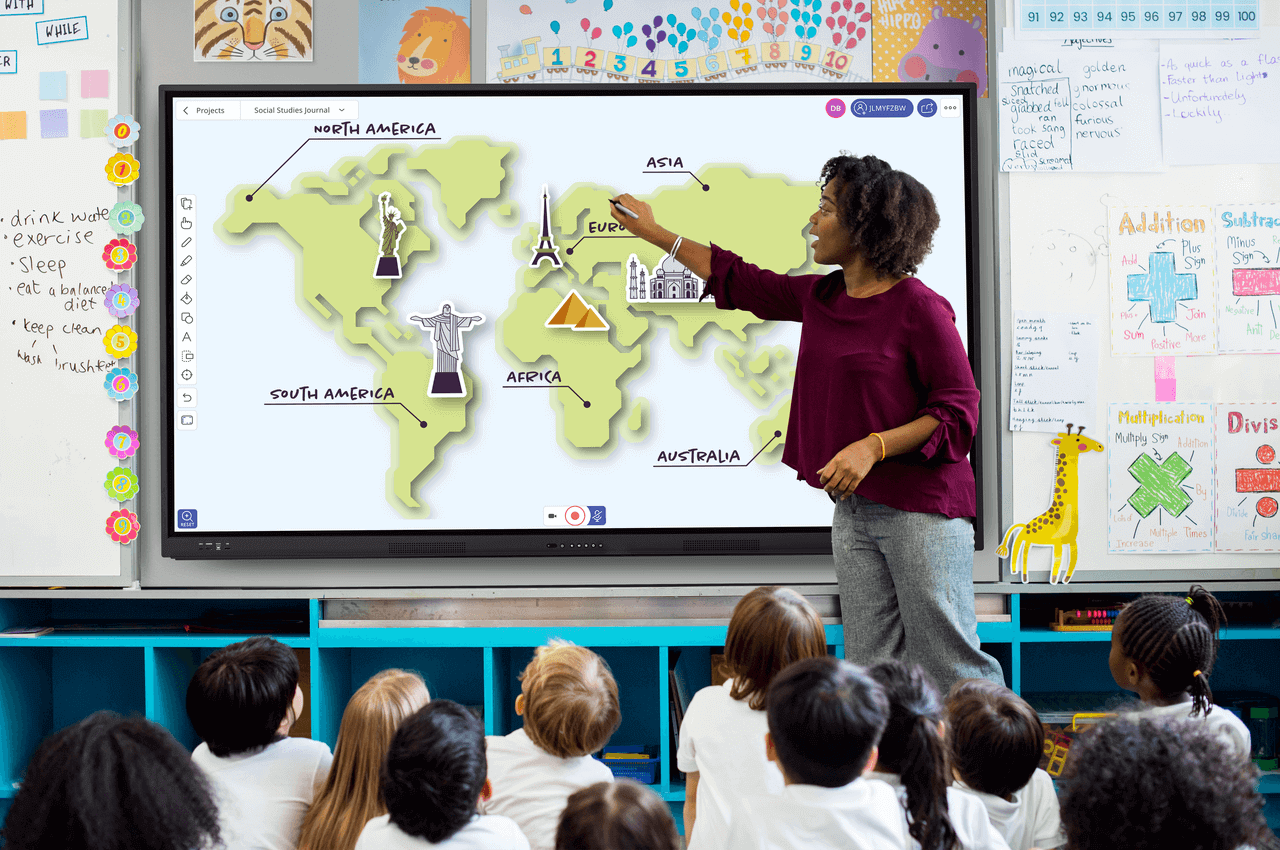Published on February 1st, 2022
English games for KS3
13 minute read

Key Stage 3 is when many children improve upon their existing critical thinking skills and other English knowledge they gained during Key Stage 2. At 11-14 years old, children are starting to learn about themselves, the world around them, and how they communicate with each other. That’s why developing a solid foundation in English is incredibly important.
As well as using traditional teaching methods, there are many classroom games you can use in your lesson plans to make learning more fun and engaging. In this guide, we explore these games and how they could be beneficial for your students’ development.
What is taught at KS3 English?
Key Stage 3 covers the first three years of secondary school (years 7, 8 and 9) when children are between 11 and 14 years old. The four main areas of the KS3 English curriculum are:
1. Reading
Children are given a range of fiction and non-fiction books, poems and plays from different times in history, genres and authors. The English curriculum in the UK will include works from William Shakespeare and other seminal texts that will help students tackle exciting themes and concepts and improve their vocabulary as they progress.
From this, they can understand the author’s intentions, how an audience might respond to a text, where this text fits in context with the text’s time period, and how it can reflect society more broadly.
2. Writing
Developing writing skills is crucial for navigating life, and students will be expected to write essays reflecting on what they have learned in class. Students also get the opportunity to express themselves creatively through stories, scripts, poetry and other creative writing.
Some essays may even ask students to argue their opinions, which can help them develop their own identity. Understanding how to structure and piece together an argument through planning, drafting, editing, and proofreading can serve as excellent practice for later life.
3. Grammar and vocabulary
Through a variety of vocabulary games and grammar exercises, students will be asked to implement new ways of structuring sentences and more advanced terminology.
Additionally, this stage of learning encourages students to develop a nuanced understanding of language, such as tone, style, and context. Students will engage in activities that prompt them to recognise when formal language is appropriate while fostering an appreciation of the flexibility and familiarity of informal language.
Ultimately, this comprehensive approach to grammar and vocabulary aims to equip students with the linguistic tools and skills necessary to excel in both academic and real-world settings.
4. Spoken language
In the KS3 English curriculum in the UK, the study of spoken language is a crucial component aimed at developing students’ oral communication skills. This encompasses articulating thoughts, ideas, and information effectively in various contexts, from formal presentations to informal group discussions.
Overall, the teaching of spoken language in the KS3 English curriculum aims to equip students with the confidence and skills to communicate effectively in different situations, both in and out of school. It fosters critical thinking, empathy, and the ability to express oneself clearly and persuasively.
What are some fun English KS3 games?
There are so many great classroom quiz games and apps designed specifically for Key Stage 3 students that can add a dynamic dimension to your classroom. These activities make learning more enjoyable and serve as powerful tools to reinforce key concepts in grammar, vocabulary, and spoken language. From lively word games to interactive computer games, these resources are tailored to stimulate creativity and critical thinking.
Let’s explore a selection of games that can inject a burst of excitement into your English lessons.
Fiction text games for KS3 students
Twinkl Narrative Writing Samples
In Key Stage 3, students are expected to choose and read books independently and re-read books they’ve already covered to increase their familiarity with them and provide a basis for making comparisons. The Twinkl website has various reading and writing samples to introduce students to new words and spelling, including nouns, verbs and adjectives they may not use every day.
Non-fiction text games for KS3 students
In this innovative game, non-fiction writing takes a thrilling turn with the introduction of a zombie apocalypse scenario. Through persuasive writing, reporting, and formal letters, students engage with a variety of non-fiction forms in a dynamic and engaging context. This not only sharpens their writing skills but also sparks their imagination. As they tackle increasingly complex texts, students will also expand their vocabulary.
Spelling games for KS3 students
Some words in the English language are so similar that it’s confusing to know which version should be used in specific contexts, for example, ‘affect’ vs. ‘effect’. This game will test your students on the different uses of homonyms through fun, interactive quizzes and help them get to grips with trickier aspects of semantic and lexical concepts.
Punctuation games for KS3 students
Quizzes are a great way to consolidate your pupil’s knowledge and skills regarding punctuation. Kids will learn and practise using punctuation, such as commas, speech marks, colons, semicolons, full stops, exclamation marks, question marks and apostrophes, while engaging with interactive quizzes.
English grammar games for KS3 students
The Skillwise website is a part of the BBC Teach initiative and provides a wide range of teaching resources and printable games for you to play with your pupils to teach them all about English grammar. In these interactive lesson starters, your pupils will learn different word types and explore verbs, nouns, adjectives, adverbs, pronouns and connectives.
Shakespeare games for KS3 students
What a fantastic way to immerse students in the world of Shakespeare! This game fosters a deep understanding of the intricate plots and characters in Shakespearean plays and encourages critical thinking and analytical skills.
By delving into the motives and alibis of each character in Macbeth, students get a taste of brilliant storytelling and become active participants in the unravelling of a captivating mystery. This interactive approach makes the material more accessible while also instilling a lasting appreciation for Shakespeare’s timeless works.
Poetry games for KS3 students
Paint Chip Poetry is a dynamic and creative game that infuses poetry with vibrant imagery. Using colour sample chips as prompts, students embark on a journey of poetic expression inspired by hues and their evocative names.
This exercise enriches their vocabulary and encourages the development of unique and vivid verses. With the versatility to change prompts, students continuously expand their linguistic repertoire, ensuring each poem is a distinctive work of art.
Reading games for KS3 students
Adventure at Dragon Castle: a Puzzled Adventure eBook
Adventure at Dragon Castle is an exciting puzzle adventure eBook featuring a fun-filled story, vibrant illustrations and intriguing challenges to solve. This eBook will help teachers educate their students about new nouns, verbs and adjectives that students may not have encountered before.
By asking students to take turns reading a section of the story aloud in front of the class, each individual will be exposed to these new words and improve their reading skills.
Writing games for KS3 students
What better way to get the imagination flowing for a creative writing session than with simple randomised prompts? Story cubes, or story dice, let you roll for concept inspiration and storyboard ideas. Why not set a brief, give some story cubes to your class and let them create completely unique stories to practise and deepen their vocabulary?
Spoken English games for KS3 students
Getting your students to practise tongue twisters is a great way to introduce some silliness and fun into the classroom. Encourage students to pair up and see who can say a tongue twister quickly without messing up their pronunciation. This game is great for practising phonics in the classroom as students can work on one or two sounds at a time to get the pronunciation right.
Why do games help with learning?
Games are potent tools for learning due to their inherent capacity to engage and motivate learners. The element of challenge, coupled with the potential for competition or achievement, captivates students, encouraging active participation and sustained focus.
Additionally, games encourage collaboration and teamwork, fostering social interactions, communication skills, and collective problem-solving abilities.
With the use of ActivPanel interactive displays, appealing to all learning styles and teaching through games reaches a whole new level. These cutting-edge displays offer a seamless integration of technology into the learning environment where students can directly interact with the content.
Whether you’re engaging reading/writing learners with Zombie Outbreak or visual learners with Paint Chip Poetry, you can engage students with all different learning preferences simultaneously.
This hands-on approach reinforces their understanding of concepts and prepares them for the digital age, where interactive displays play an increasingly crucial role in various fields. By incorporating these tools into the classroom, teachers unlock a powerful tool that transforms learning into an immersive, collaborative, and highly effective experience.
Need more games for KS3?
Discover other fun activities to enhance learning across the curriculum by using the links below:
- Science games for Key Stage 3
- Maths games for Key Stage 3
- Classroom games for Key Stage 3 students
- History games for interactive whiteboards
As well as KS3, we also have interactive games for KS1 and English games for KS2.
English games on Promethean interactive displays
You can play all of the exciting games listed here seamlessly on a Promethean ActivPanel interactive display. The online games can be downloaded and played from the display and also mirrored onto student devices for ultimate engagement.
If you have enjoyed this guide, why not check out some of our other expert interactive whiteboard resources?
Are you interested in learning more? Speak with a Promethean expert and request your FREE demo today!




